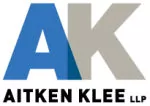- with Senior Company Executives, HR and Finance and Tax Executives
- with readers working within the Insurance industries
- with readers working within the Insurance industries
Canadian content creators should be aware of Bill C-59's amendments to the Competition Act that will take effect on June 20, 2025. The Competition Act applies to anyone who is promoting a product, service or any business interest in Canada, including influencers posting about their sponsors/affiliates (see the Competition Bureau's bulletin on Influencer Marketing and the Competition Act). This post focuses on a new path to challenge "deceptive marketing practices".
What do I need to know? Part VII.1 of the Competition Actdescribes different types of deceptive marketing practices that are considered "reviewable conduct" by the Commissioner of Competition. For example, one reason why you must disclose when your post is an #ad is section 74.01, which prohibits making a representation to the public that is false or misleading in a material respect. Previously, only the Commissioner could challenge deceptive marketing practices and seek remedies under section 74.1 (such as penalty payments or orders to stop the conduct) from the Competition Tribunal or a Court.
What's new? Section 103.1 will now allow private individuals, groups, or companies to challenge deceptive marketing practices. As of June 20, 2025, a person can ask the Competition Tribunal for permission to bring their own application under section 74.1 to the Tribunal or a Court. The person has one year from the time the conduct was completed to ask for permission (also called "leave").
The Tribunal may grant leave to challenge deceptive marketing practices if it is satisfied that "it is in the public interest to do so". This "public interest" standard for deceptive marketing practices is different than the standard for other sections of the Competition Act that require the Tribunal to have "reason to believe that the applicant is directly and substantially affected in the whole or part of the applicant's business" by the conduct OR to be satisfied that "it is in the public interest to do so."
OK, but what does that mean for content creators? An individual, group, or company whose business is not directly or substantially affected by your content could ask the Tribunal for permission to challenge it as a "deceptive marketing practice" in court. For example, if you post about the environmental impact of certain products, an advocacy group concerned that your content is off-side the "greenwashing" restrictions in sections 74.01(1)(b.1) and (b.2) could try to challenge it (see the Competition Bureau's guidelines on Environmental claims).
What can I do to protect myself? Be aware of your legal obligations when posting content for brands and seek assistance from a legal professional.
Updated general guidance will be published by the Competition Bureau about private access to the Competition Tribunal, so stay tuned! An excerpt of Bill C-59 with the Competition Act amendments can be found here.
The content of this article is intended to provide a general guide to the subject matter. Specialist advice should be sought about your specific circumstances.



